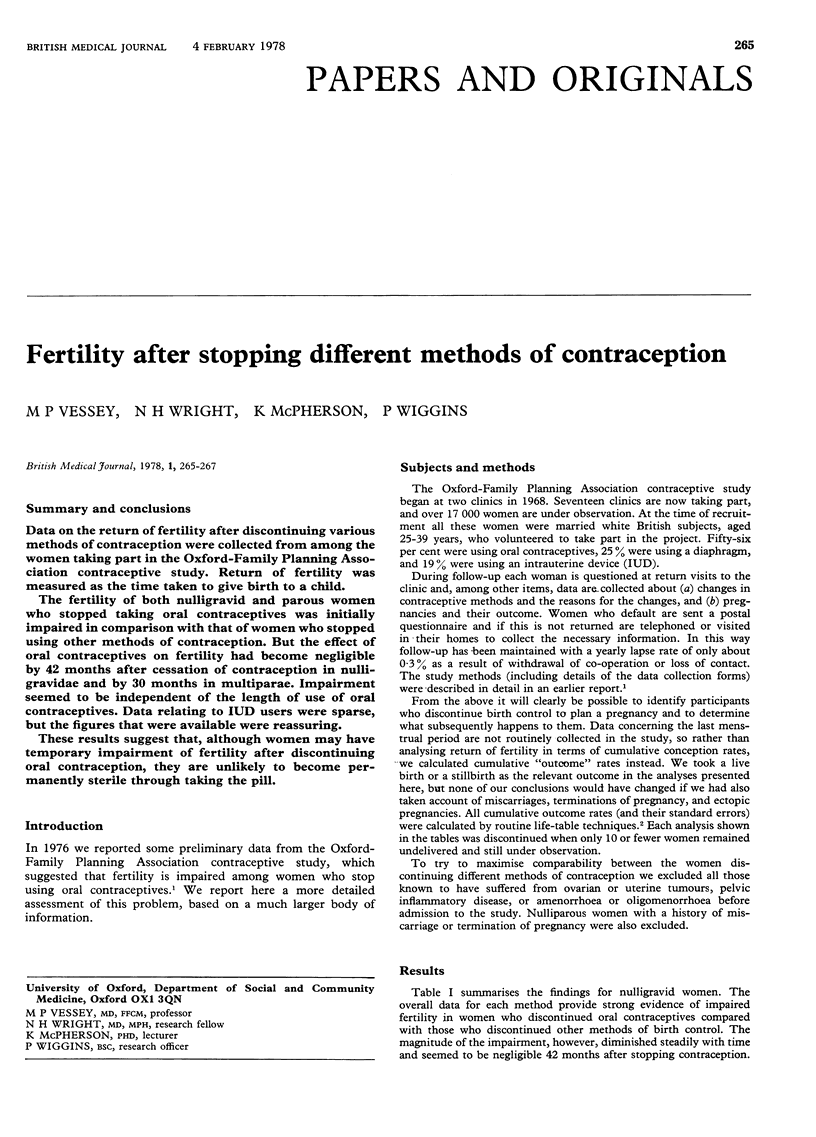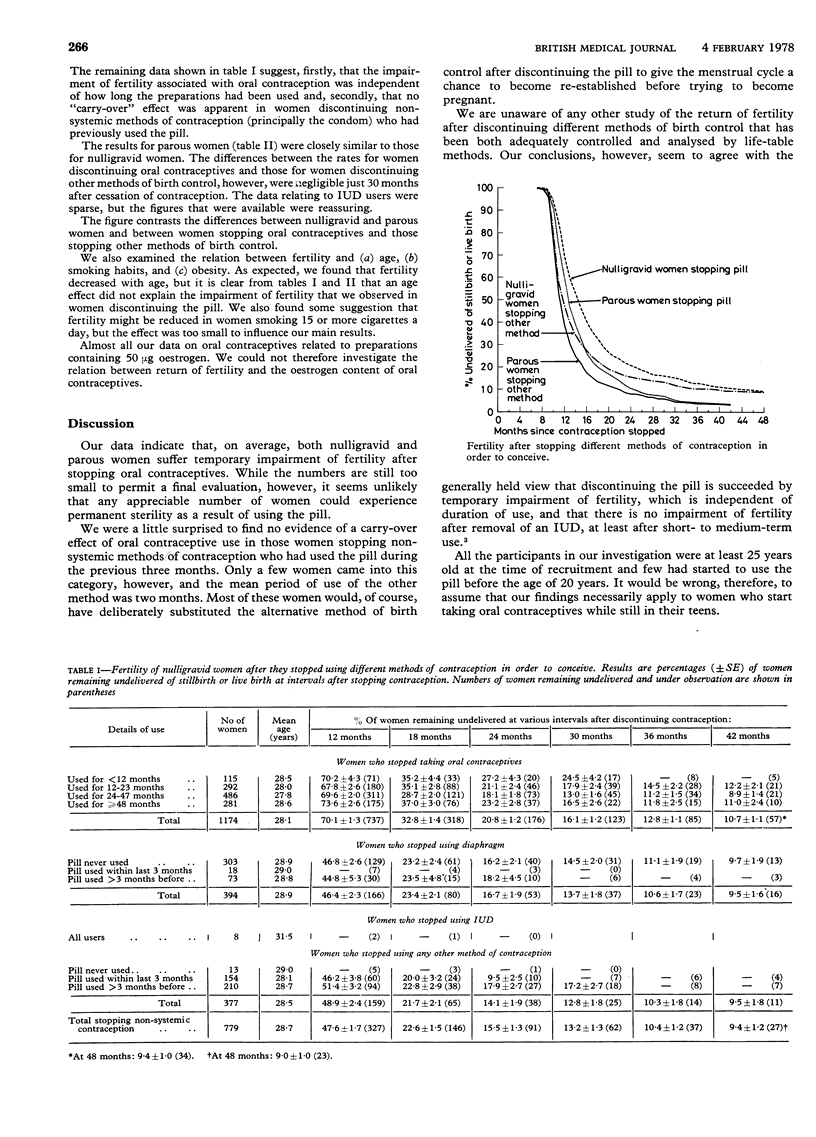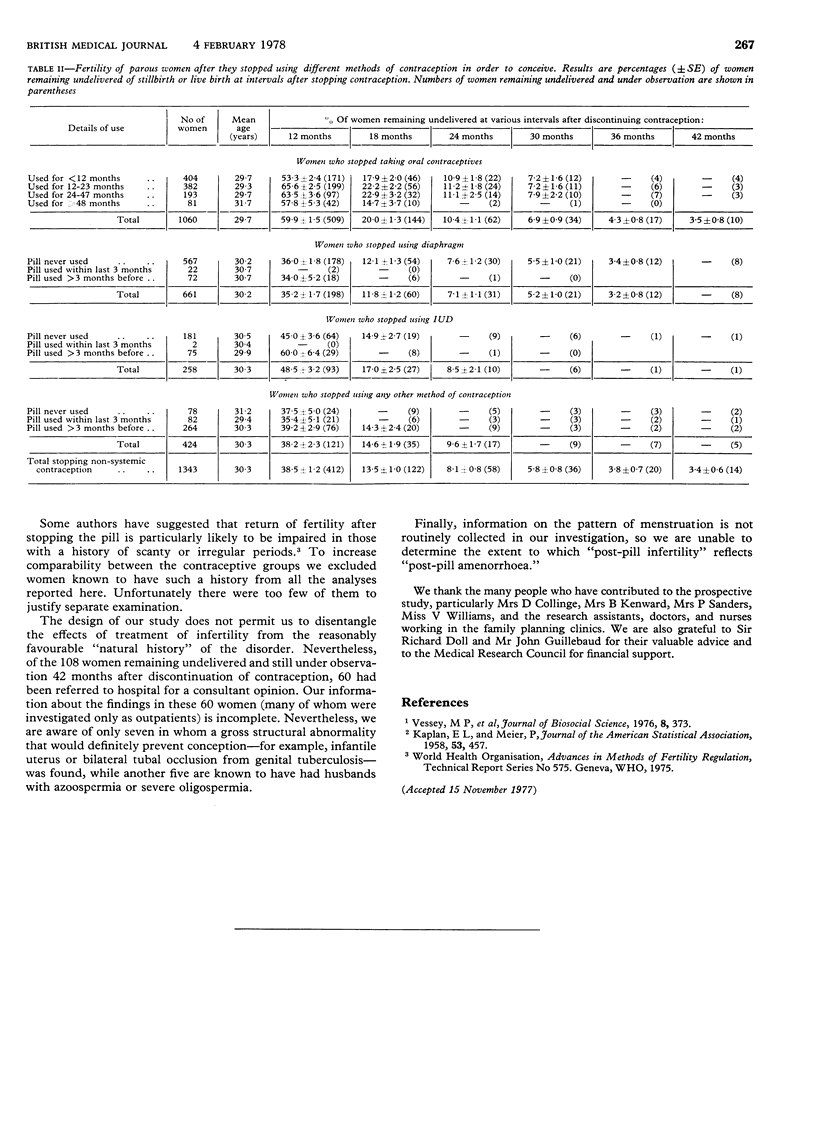Abstract
Data on the return of fertility after discontinuing various methods of contraception were collected from among the women taking part in the Oxford-Family Planning Association contraceptive study. Return of fertility was measured as the time taken to give birth to a child. The fertility of both nulligravid and parous women who stopped taking oral contraceptives was initially impaired in comparison with that of women who stopped using other methods of contraception. But the effect of oral contraceptives on fertility had become negligible by 42 months after cessation of contraception in nulligravidae and by 30 months in multiparae. Impairment seemed to be independent of the length of use of oral contraceptives. Data relating to IUD users were sparse, but the figures that were available were reassuring. These results suggest that, although women may have temporary impairment of fertility after discontinuing oral contraception, they are unlikely to become permanently sterile through taking the pill.
Full text
PDF


Selected References
These references are in PubMed. This may not be the complete list of references from this article.
- Vessey M., Doll R., Peto R., Johnson B., Wiggins P. A long-term follow-up study of women using different methods of contraception--an interim report. J Biosoc Sci. 1976 Oct;8(4):373–427. doi: 10.1017/s0021932000010890. [DOI] [PubMed] [Google Scholar]


